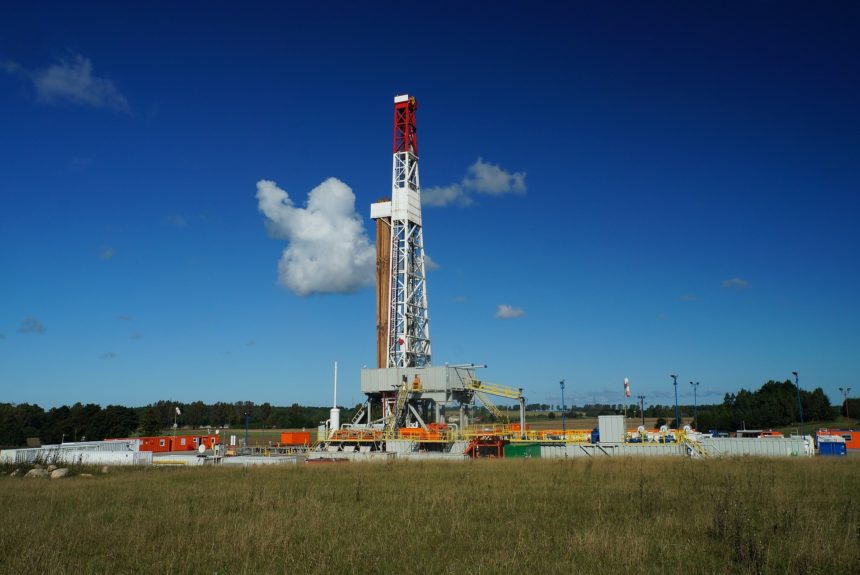There is more than one way to deliver energy in a free market. That’s why the free market works.
For example, you’ve probably heard about the Texas oilman named George P. Mitchell. He was largely responsible for inventing natural gas fracking. Doing so unlocked vast untapped resources, turned America from an energy importer to an energy exporter, and helped reduce greenhouse gas emissions around the world faster than any high-technology solution we have yet to launch.
This article isn’t about that but it’s important to remember that because of the domestic natural gas boom, American CO2 levels were falling even before the 2020 COVID shutdown sent emissions plunging. For example, “U.S. energy-related CO2 emissions have declined in 7 of the past 10 years, and they are now 14% lower than in 2005,” the U.S. Energy Information Administration reported in 2018. Much of the credit goes to replacing coal with natural gas to generate electricity.
>>>READ: The Growing Importance of Economic Freedom
This article is about another oil and gas entrepreneur who clearly understood the importance of the environment long before environmentalists claimed the word.
Chances are that you haven’t heard of this man unless you’re from Oklahoma or you’ve been to The Heritage Foundation (hint: his last name is etched in stone above the entrance). But chances are pretty good that you’ve benefitted from his life more than you know. And if you care about the oil patch and the people who work in it, and about climate change and the people who work to solve it, we might just have more in common than you think.
Harken back to Oklahoma in the 1930’s, during the Dust Bowl. You’ll find a man named Lloyd Noble who had begun to establish himself as a respected oil producer.
He was a forerunner of modern day frackers in that he succeeded by innovating and doing things differently. “Noble became a leader in the oil and gas drilling industry, capitalizing on new ideas and technology to drill deeper and faster than his contemporaries,” the Noble Research Institute explains. But he wasn’t satisfied with making a fortune by taking a resource out of the earth; he wanted to preserve the earth itself.
Lloyd Noble grew up working in his father’s small-town store that sold and delivered goods to farmers and ranchers. He also lived on a ranch for a year, raising cattle. It was there that he first learned the importance of a strong work ethic, but his lessons from the Dustbowl also taught him how farming and ranching without taking care of the land could have dire consequences.
>>>READ: How to Boost Farm Profits 78% (Or More) While Saving the World
He knew that healthy soil must outlast the oil. “We believe that while at times we have felt the overshadowing presence of oil, we are living in an area that is essentially agricultural,” he said. “The land must continue to provide for our food, clothing and shelter long after the oil is gone.”
With this in mind, he set up the Noble Research Institute in 1945 (originally recognized as The Samuel Robert Noble Foundation) to study ranching and agriculture and help farmers everywhere. The Institute’s programs have taught generations of agricultural producers ways to prevent erosion and protect the soil.
How does this matter to today’s need for climate solutions? As farmers and ranchers know, well-managed soil acts as a carbon sink. CO2 in the atmosphere can be claimed through photosynthesis, and the soil can store such claimed carbon as well as plant-based organic matter. Disturb the soil, and the stored carbon can be released. Keep the soil in place, with grass or other crops, and the carbon can remain fixed. Lloyd Noble’s goal of protecting and rebuilding the soil had the additional benefit of storing carbon within our agricultural lands. Add on top of that the financial benefits of healthy lands and you’ve got a win-win-win.
This nexus between healthy soil, healthy carbon, and a healthy balance sheet for agriculture is so important that the Institute is heightening its focus on regenerative ranching programs. Its emphasis is assisting the nation’s farmers and ranchers to rebuild their grazing lands while also achieving lasting profitability. “We intend to be able to provide educational and consulting programs that will equip you to effectively manage your operations using the application of regenerative principles within your context,” the Institute announced in a message to ranchers. “We want to ensure our educational tools and offerings remain relevant and dynamic.”
Regenerative agriculture is just one of the ways that Lloyd Noble’s vision 75 years ago continues to be relevant to today’s challenges. While you can bet that climate change was not on his mind, he certainly understood the importance of innovation for energy and agriculture.
As we look to the next 75 years, arguments abound between extreme environmentalists and the free market about how to best address climate change. If we can take one history lesson from the life of Lloyd Noble, I hope it’s that when people set out to do good in one area, it can often produce good in another. It’s time to stop demonizing oil, gas and coal and get to work innovating across the board, in every industry, private philanthropy included. We might just find that “the problem” turned out to find the solution for us all.
The views and opinions expressed are those of the author’s and do not necessarily reflect the official policy or position of C3.
